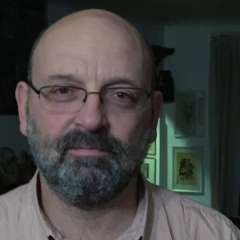Centuries can envelop a musical masterpiece in a cocoon of misconceptions and false interpretations as much they leave their mark in the form of dirt and grime on a painting’s surface. In many situations, only an outstanding rendition has the power to shock us out of our complacent relationship with a chef d'oeuvre, letting us perceive its revolutionary character and, at the same time, transporting us back to the age it was originally conceived. That was exactly the case on Friday night, under the cupola of the Romanian Athenaeum, were the Orchestra and Choir of the Age of Enlightenment, under Laurence Cummings’ baton, interpreted Gluck’s Orfeo ed Euridice, a night after accompanying a strong cast – led by the great tragedienne Anna Caterina Antonacci – in Iphigénie en Tauride. As difficult as it is to compare two disparate performances, the powerful sensation of discovering something new was greater, for me, listening to the earlier work, than to the latter one, considered by many to be Gluck’s highest achievement.
When Christoph Willibald Gluck premiered Orfeo ed Euridice at the Burgtheater in Vienna in 1762, his aim was to simplify the complex Baroque stories (full-of-intrigue narratives, inspired by Ancient Rome, were the ones predominant in Metastasio’s Vienna) and to put an end to the habit of letting all-powerful singers use the opera stage as a vehicle for displaying their vain virtuosity. Gluck and his librettist, Ranieri Calzabigi, wanted to put the accent on the drama itself, letting the characters’ passions and inner thoughts – expressed in song-like recitatives accompanied by orchestra – drive the opera forward. The prescribed contrasts between speech-imitating recitatives and virtuosic arias were put aside. Several years later, Gluck wrote in his preface to Alceste: “I sought to restrict the music to its true purpose of serving to give expression to the poetry and to strengthen the dramatic situations, without interrupting the action or hampering it with unnecessary and superfluous ornamentations.”
Friday night’s performance didn’t include any dancing. The three singers just moved between the centre of the stage and the sides. Nevertheless, the music itself was rendered so effectively that the lack of action was hardly felt. If the orchestral sound was more powerful than subtle during the overture, Laurence Cummings drew an overall animated performance, striving to shed light on every colour embedded in the score, regardless if it came from oboes, brass or harp. Successive numbers where beautifully linked together. Either hopeful shepherds or infernal furies, the members of the chorus produced a lively sound that was well balanced with the orchestra’s. In a beautiful little touch, Cunnings temporarily moved a small string band towards the back, between the brass and the chorus. It initially functioned as an echo to Orfeo’s halting lament and, a bit later, as a pizzicato support for the harp.
The countertenor embodies, more than any other voice type, the idea of otherworldliness and transcendence. If an example is needed, Iestyn Davies’instrument is the perfect one, regardless if its “master” sings Baroque music or Thomas Adès’. Starting from his intense cries that pierce the choral lament, Davies was an extraordinarily charismatic Orfeo, undoubtedly able to mesmerise Cerberus, beasts and public alike. His voice was both mellifluous and forceful, clarion clear and delicate, penetrating but elegant, producing a sound of amazing purity. Not only the almost Mozartean “Che farò senza Euridice”, but also other moments – “Chiamo il mio ben così” or “Che puro ciel!” – were both technical immaculate and full of expressivity.
Warm-toned and expressive Lydia Teuscher brought forward with ease Euridice’s confusion and despair, but, maybe less so, the character’s moments of rage. Her soprano voice blended well with Davies’ in their third act dialogue. Soprano Rowan Pierce sang Amor, making clear to everyone listening that she is ready for meatier roles.
Nevertheless, it was undoubtedly Iestyn Davies’ evening. If this is an opera about the power of music, nobody could have been more convincing in conveying that message.




